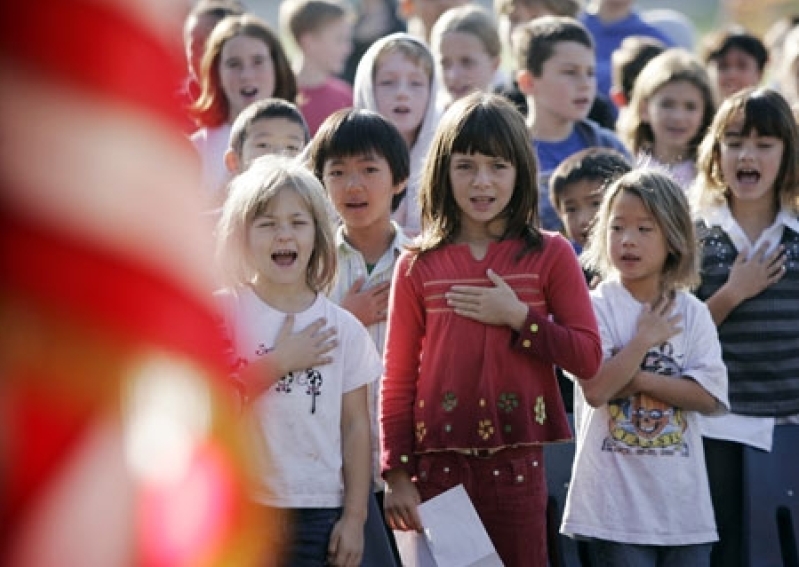
A federal appeals court on Thursday upheld the constitutionality of references to God in the Pledge of Allegiance and on national currency.
The pledge does not constitute an establishment of religion, Judge Carlos Bea wrote for the majority in the U.S. Court of Appeals for the Ninth Circuit. "[T]he Pledge is an endorsement of our form of government, not of religion or any particular sect."
The three-judge panel ruled 2-1.
"The Pledge of Allegiance serves to unite our vast nation through the proud recitation of some of the ideals upon which our Republic was founded and for which we continue to strive," Bea stated in the opinion.
The lawsuit was brought by Sacramento atheist Michael A. Newdow, along with three parents and their children, who argued that the phrase "under God" was "sectarian religious dogma" and interfered with the patriotism and unity the pledge was meant to engender.
They also contended that the two words endorsed the "religious notion that God exists" and thereby created a "societal where prejudice against atheists … is perpetuated."
In a separate lawsuit, Newdow argued for the removal of "In God We Trust" from U.S. currency.
The court panel also rejected the national motto challenge in a 3-0 ruling, stating that it is patriotic and ceremonial, and not religious.
Newdow said the rulings sent the message that: "To be a real American, you believe in God, and the judiciary unfortunately sometimes can't be trusted to uphold our constitutional rights when you're a disenfranchised minority," as reported by the San Francisco Chronicle.
The American Center for Law and Justice, meanwhile, was "extremely pleased that the appeals court rejected yet another attempt to re-write history."
"The fact is that it always has been our position that while the First Amendment affords atheists complete freedom to disbelieve, it does not compel the federal judiciary to redact religious references in every area of public life in order to suit atheistic sensibilities," stated the ACLJ, which filed an amicus brief in the national motto case representing nearly 50 members of Congress. "We’re delighted to see the appeals court reach that conclusion with both the National Motto and the Pledge."
The same appeals court, though a different panel, had caused uproar in 2002 when it ruled in favor of Newdow the first time he filed suit against the Pledge of Allegiance. The U.S. Supreme Court, however, reversed the decision in 2004 on technical grounds.
This second time around, a federal judge in 2005 sided with the atheist in declaring the pledge unconstitutional. But on Thursday, the new appeals court panel ruled to uphold the pledge.
In the opinion, Bea pointed out that the plaintiffs and the dissent focused solely on the words "under God" in isolation, stripped of all context and history.
Under Supreme Court law, however, Bea said the panel examined the Pledge of Allegiance as a whole, not just the two words the plaintiffs found offensive.
"In doing so, we find the Pledge is one of allegiance to our Republic, not of allegiance to the God or to any religion. Furthermore, Congress’ ostensible and predominant purpose when it enacted and amended the Pledge over time was patriotic, not religious."







